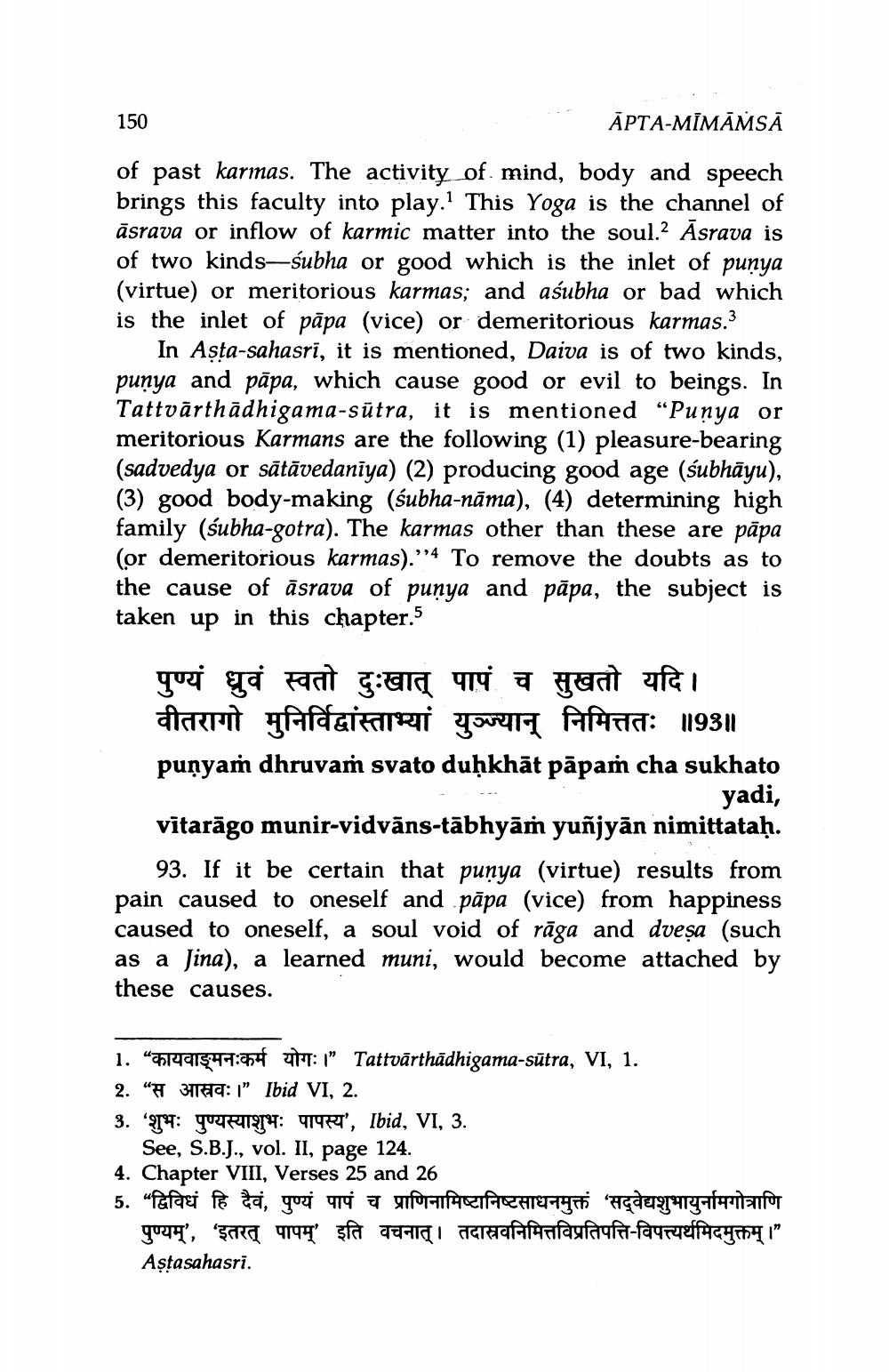________________
ĀPTA-MĪMĀMSĀ
of past karmas. The activity of mind, body and speech brings this faculty into play.1 This Yoga is the channel of asrava or inflow of karmic matter into the soul.2 Asrava is of two kinds-subha or good which is the inlet of punya (virtue) or meritorious karmas; and asubha or bad which is the inlet of papa (vice) or demeritorious karmas.3
In Aṣṭa-sahasrī, it is mentioned, Daiva is of two kinds, punya and papa, which cause good or evil to beings. In Tattvärthadhigama-sūtra, it is mentioned "Punya or meritorious Karmans are the following (1) pleasure-bearing (sadvedya or sātāvedanīya) (2) producing good age (subhāyu), (3) good body-making (śubha-nāma), (4) determining high family (subha-gotra). The karmas other than these are păpa (or demeritorious karmas)."4 To remove the doubts as to the cause of asrava of punya and papa, the subject is taken up in this chapter.5
150
पुण्यं ध्रुवं स्वतो दुःखात् पापं च सुखतो यदि । वीतरागो मुनिर्विद्वांस्ताभ्यां युञ्ज्यान् निमित्ततः ॥93॥ punyam dhruvaṁ svato duḥkhāt pāpaṁ cha sukhato yadi, vitarāgo munir-vidvāns-tābhyāṁ yuñjyān nimittataḥ.
93. If it be certain that punya (virtue) results from pain caused to oneself and papa (vice) from happiness caused to oneself, a soul void of rāga and dveṣa (such as a Jina), a learned muni, would become attached by these causes.
1. ":" Tattvarthadhigama-sūtra, VI, 1.
2. "I" Ibid VI, 2.
3. 'शुभः पुण्यस्याशुभः पापस्य', Ibid, VI, 3.
See, S.B.J., vol. II, page 124.
4. Chapter VIII, Verses 25 and 26
5. “द्विविधं हि दैवं, पुण्यं पापं च प्राणिनामिष्टानिष्टसाधनमुक्तं 'सद्वेद्यशुभायुर्नामगोत्राणि पुण्यम्', 'इतरत् पापम्' इति वचनात् । तदास्रवनिमित्तविप्रतिपत्ति-विपत्त्यर्थमिदमुक्तम् ।” Aṣṭasahasri.




